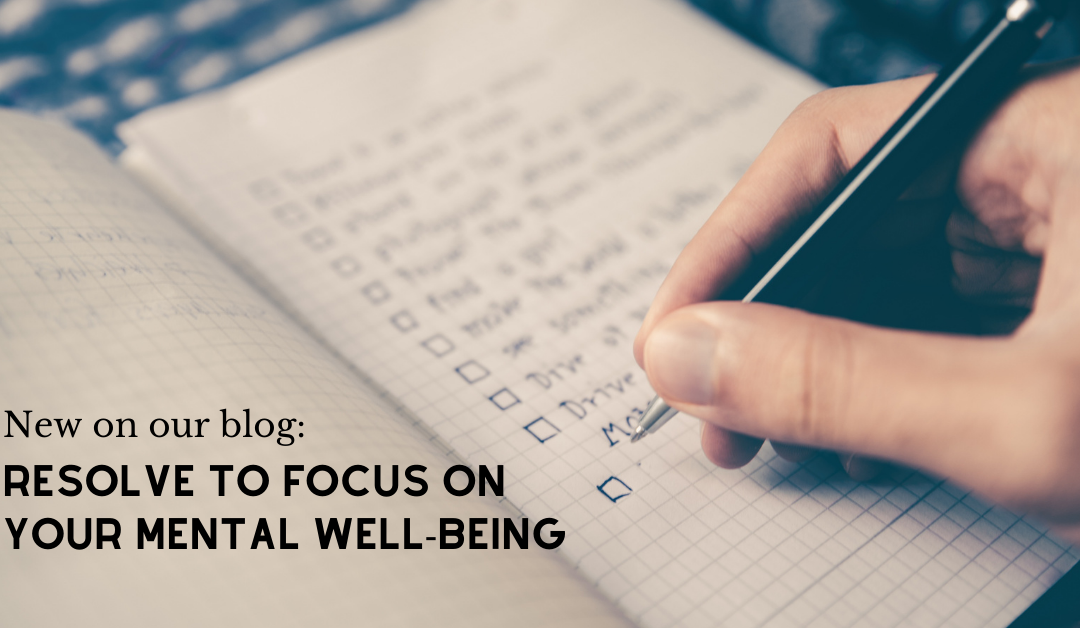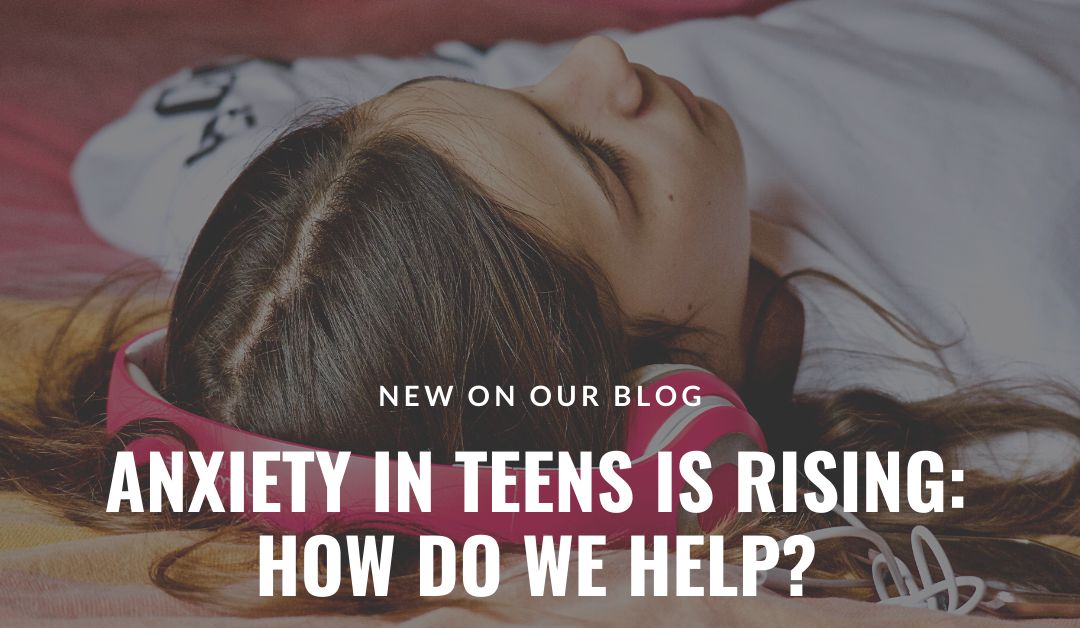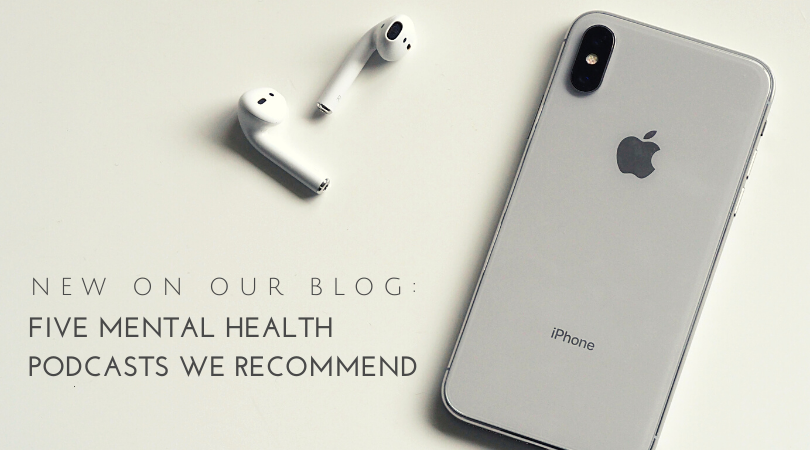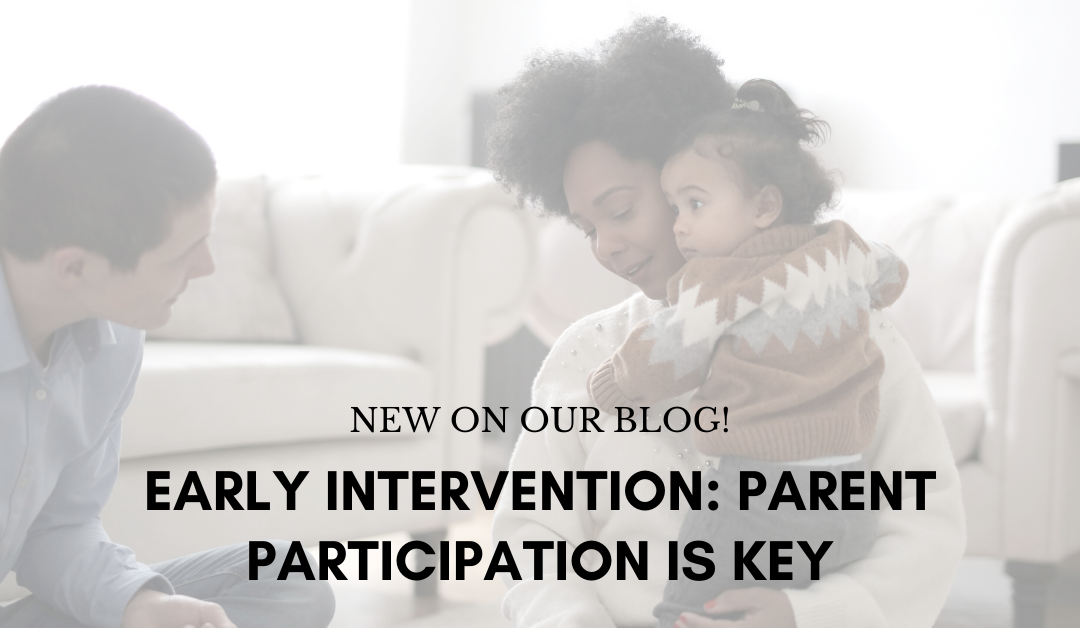
by Sara Hart | Jan 14, 2021 | Blog
As we forge ahead into a new year, it’s important for us all to take the time to reflect, self-analyze and adjust our practices and mindsets. Resolutions give us an opportunity to redefine how we operate. As a community, we can strive to create positive changes this year for the sake of mental wellness. Below we’ve outlined a few resolutions that can uplift your mental well-being this year.
Avoid negativity in your life.
Unwanted negativity only amplifies stress. Instead of spending time and energy on things or people that continually bog you down, remember that they don’t have to rule you or your life path. If you find yourself feeling weighed down by negative thoughts, consider speaking to a trusted friend or clinician for support. Lean on those who care about you when you’re working to reset your thought process.
Remove “should have,” “could have” and “would have” from your vocabulary.
While setting goals can motivate you to live a more positive life, there’s no need to feel like a failure if you don’t meet them. Life is full of surprises, and it’s rarely going to go exactly as planned. So, avoid letting rigid expectations control you. Allow for flexibility, …

by Sara Hart | Jul 23, 2020 | Blog
The COVID-19 pandemic has led to sudden changes in the social lives and daily routines of teens. With social distancing being enforced and important school events such as prom and graduations being canceled, it’s natural for teens to feel devastated, anxious and disconnected. Nearly one in three teens between ages 13 and 18 will experience an anxiety disorder according to the National Institute of Mental Health. Now more than ever, it’s crucial we encourage our teens to prioritize their mental wellness. Below, we break down steps you can take to help your children maintain positive mental health.
Know the signs of anxiety.
It’s common for teens to feel as if they can’t effectively communicate what they’re experiencing, so these emotions manifest themselves into habits that could show anxiety. For instance, some adolescents feel the need to worry endlessly about routine parts of his or her day. Others also show changes in behavior such as increased irritability. Some may develop negative behaviors such as insomnia, school avoidance or substance abuse. Work with your child to establish healthy coping skills that will ease the stress of the daily struggles he or she faces.
Be mindful of the pressures put on your …

by Sara Hart | Jun 16, 2020 | Blog
Our nation is facing devastating and difficult times, and it’s so important – now more than ever – to maintain your mental health. If you already struggle with anxiety, depression or other mental health challenges, these days of isolation, inequity and uncertainty can be extremely troubling. There are several podcasts that focus on the importance of mental health, and they may inspire and inform you. Below, we’ve listed five podcasts that offer tips on how to combat symptoms and triggers of mental health challenges.
Millennial Mental Health Channel
Mental health is a hot topic for millennials, and this podcast addresses the impact it has on this generation. Hosted by a licensed psychiatrist and therapist, this podcast seeks to give listeners perspective on the world of mental health in bite-size chunks that make it easier to absorb and understand.
Cleaning Up the Mental Mess with Dr. Caroline Leaf
Looking for some quick and easy mental health tips to sprinkle into your busy life? Dr. Caroline Leaf, a cognitive neuroscientist and bestselling author, gives you tools to help take control of your emotional, physical and mental health.
Therapy for Black Girls
Clinical psychologist, Dr. Joy Harden Bradford, started this podcast to …

by Sara Hart | May 21, 2020 | Blog
Adults learn best through experience. Think about it – how often do you search YouTube or Google for how-to tutorials? It’s much easier to complete and master a task once you’ve seen how it’s done. At South Bay, we recognize this, and we infuse this thinking into our Early Intervention services. Going through a new experience – especially when it comes to raising a child with a developmental delay – can be stressful and scary. We understand, and our clinicians are here to help you every step of the way, as it’s a collaborative effort between the clinician and the parent. Below, we offer tips on how parents can ensure they’re actively engaging in intervention strategies, allowing their child to have the best possible beginning.
Engage in affectionate and nurturing interactions.
Holding, singing, rocking or talking to infants are interactions that might seem natural to parents. But, these exchanges are more fundamental to a child’s development than one might know. These connections provide your child with the stimulation his or her growing brain needs. Positive interactions send messages to your baby that he or she is valued. As a result, your child will grow up knowing to treat others in …

by Sara Hart | Apr 16, 2020 | Blog
At South Bay Community Services, we’re thankful that social distancing does not mean social isolation. In this digital era, we are able to (virtually) connect with and serve our clients through telehealth services. As we adjust to this new normal during the pandemic, it’s natural for questions to arise. Below, we dive into everything you need to know about telehealth services, so you can continue (or begin!) your journey toward recovery with South Bay.
What is telehealth?
During this period of quarantine, we are able to use telecommunications and virtual technology to provide our clients with the same high-quality care and services they have received in the past.
What do I need to use South Bay’s telehealth services?
All you need is a computer, tablet or phone.
How does it work?
You will be sent a link for the video session. All you have to do is click on it when your session is scheduled to start and dial the call-in number and your personal identification number. If available, you can use the camera and audio on your device.
If you do not have an email address, no worries. Your clinician will provide you with a secure call-in number with …





